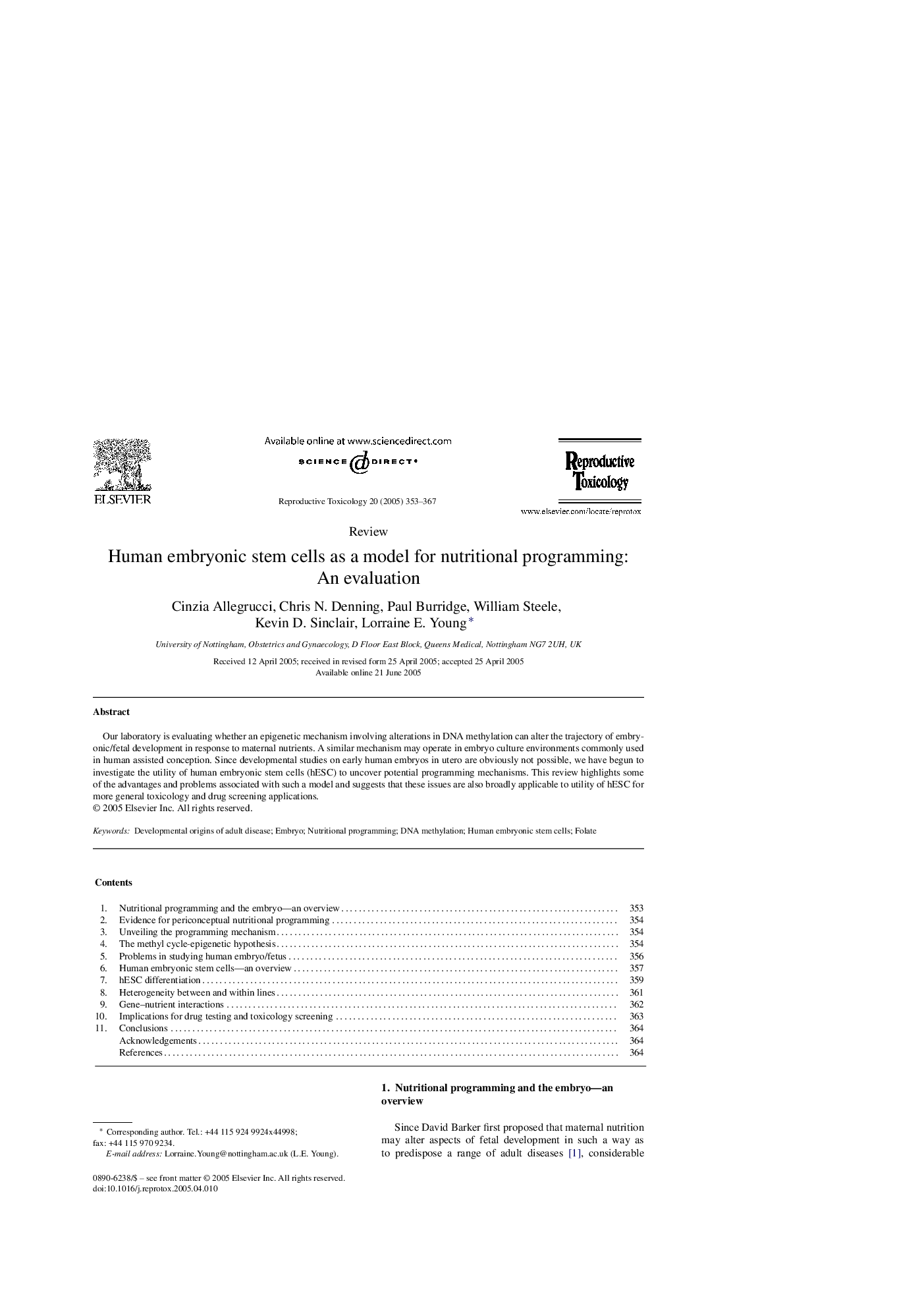| Article ID | Journal | Published Year | Pages | File Type |
|---|---|---|---|---|
| 9034296 | Reproductive Toxicology | 2005 | 15 Pages |
Abstract
Our laboratory is evaluating whether an epigenetic mechanism involving alterations in DNA methylation can alter the trajectory of embryonic/fetal development in response to maternal nutrients. A similar mechanism may operate in embryo culture environments commonly used in human assisted conception. Since developmental studies on early human embryos in utero are obviously not possible, we have begun to investigate the utility of human embryonic stem cells (hESC) to uncover potential programming mechanisms. This review highlights some of the advantages and problems associated with such a model and suggests that these issues are also broadly applicable to utility of hESC for more general toxicology and drug screening applications.
Keywords
Related Topics
Life Sciences
Environmental Science
Health, Toxicology and Mutagenesis
Authors
Cinzia Allegrucci, Chris N. Denning, Paul Burridge, William Steele, Kevin D. Sinclair, Lorraine E. Young,
